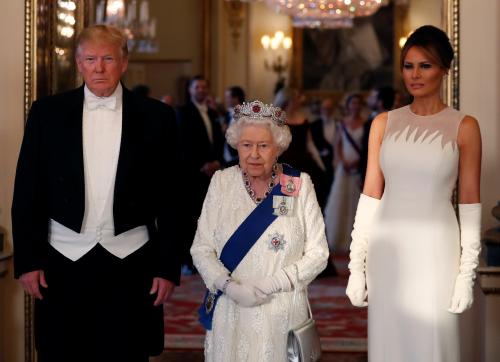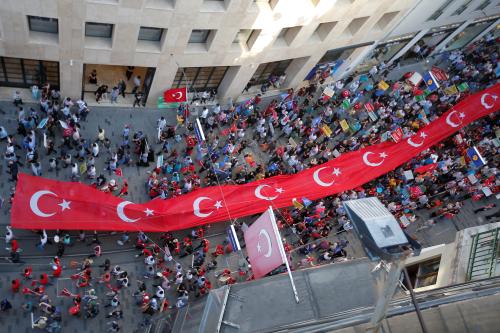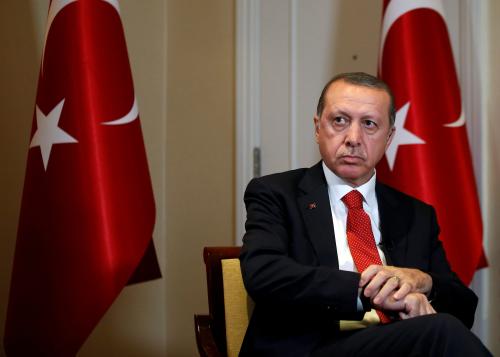

10:30 am EDT - 12:00 pm EDT
Past Event
10:30 am - 12:00 pm EDT
1775 Massachusetts Avenue N.W.
Washington, DC
20036
Turkey’s President Recep Tayyip Erdoğan has called snap presidential and parliamentary elections for June 24. Following the failed coup attempt in July 2016, the constitutional referendum in April 2017 that approved a more powerful executive presidency, and recent economic turbulence, Turkish politics have become increasingly volatile. Recent polls suggest it is likely that Erdoğan will win the presidency in a run-off, but his Justice and Development Party (AKP) will lose its majority in parliament. What would be the domestic, economic, and foreign policy implications of such a mixed result? And what would a renewed mandate for Erdoğan mean for Turkey’s democracy, economy, and relations with the United States and Europe?
To address the outcome of the elections and its wide-ranging implications, the Center on the United States and Europe at Brookings convened an expert panel on Wednesday, June 27. The panel featured Ali Çarkoğlu, professor in political science at Koç University; Charles Johnston, BIAC executive board vice chair and managing director of international government affairs at Citi; Amanda Sloat, Robert Bosch senior fellow at Brookings; and Kemal Kirişci, TÜSİAD senior fellow and director of the Turkey Project at Brookings. The discussion was moderated by Karen DeYoung, associate editor and senior national security correspondent for The Washington Post.
Moderator

Panelist


July 18, 2019

Kemal Kirişci, Ömer Taşpınar
June 21, 2018

Kemal Kirişci, Kutay Onayli
April 23, 2018